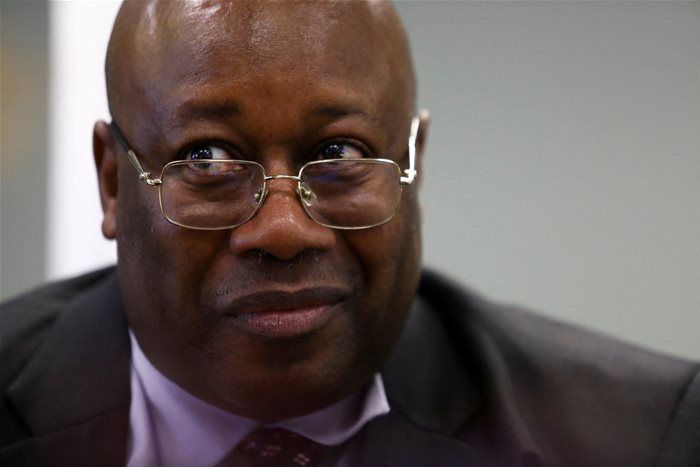Lithium-rich African countries, including Zimbabwe and Namibia, are trying to develop processing and refining industries to capture more of the profits of global demand for battery material.

Zimbabwe mines minister Winston Chitando speaks to Reuters at the Investing in African Mining Indaba 2023 conference in Cape Town. Source:Reuters/Shelley Christians
As the auto industry shifts towards electric vehicles (EVs) - spurred by proposed bans on fossil-fuel cars beginning at the end of the decade - lithium prices and demand have soared.
China, the world's top lithium refiner and a leading producer, dominates the supply chain, but Western governments and international companies are trying to challenge that and see Africa's lithium reserves as an opportunity.
Viren Sookhun 12 Jan 2023
Retaining the value of resources
For their part, African countries are determined to retain more of the value of their resources than they have in the past, which means not just mining them, but processing them before export, which economically is referred to as beneficiation.
"We are saying to ourselves, if you have got the minerals that everybody wants now, you need to make sure that at least you probably mine those minerals differently and not in the usual manner," Namibia's mines minister Tom Alweendo told Reuters in an interview at the Investing in African Mining Indaba in Cape Town.
"We are going to insist that all lithium mined within the country has to be processed in the country."
Africa's lithium production is set to rapidly increase this decade. From 40,000 tonnes this year, the continent will likely produce 497,000 tonnes in 2030, commodities trader Trafigura estimates, with the bulk of that coming from Zimbabwe.
Prices for lithium more than doubled last year as demand from the electric vehicle industry outstripped supply.
Zimbabwe in December imposed a ban on raw lithium exports, a measure aimed at stopping the smuggling of lithium ore and spurring mines to process in the country.
"We made plans to only allow the export of concentrates," the country's mining minister Winston Chitando told Reuters. "Because of the ban, other investors have come in wanting to mop up lithium ores and develop them to concentrate stage."
'Poison of greed'
Mining has often been linked to the exploitation of workers or environmental degradation by foreign powers. In his visit to the Democratic Republic of Congo, Pope Francis at the end of January condemned the "poison of greed" for mineral resources that have exacerbated conflict in the country's east.
The latest effort by African governments is far from the first time they have resolved to retain more of the value of their mineral wealth, which ultimately should boost tax revenue, encourage new businesses and add jobs.
The global transition away from fossil fuels is giving a sense of urgency, although many obstacles remain, notably insufficient electricity supply.
As companies and investors around the world focus on goals to reduce carbon emissions and increase supplies of the minerals that should help, companies and investors are reconsidering projects they may have previously overlooked.
Unique times driven by clean energy transition
"These are really unique times we are living in, with this whole transition to a clean energy future, and Ghana could be part of this story," Len Kolff, interim chief executive officer at Atlantic Lithium, said.
The company's Ewoyaa mine project is set to be the first lithium producer in the West African country. US firm Piedmont Lithium has signed a deal to get 50% of the lithium produced.
"Everybody's approaching us, like the whole who's who on the Chinese list and now it's all the Western OEMs [original equipment manufacturers]," Kolff said.
In Mali, Leo Lithium's Goulamina mine plans to take advantage of high prices to export two 30,000-tonne shipments of lithium ore by the end of this year, managing director Simon Hay said.
The proceeds would help to develop the project to allow domestic processing, Hay said, with the first production expected in the middle of next year to be sent to China's Ganfeng Lithium.


























